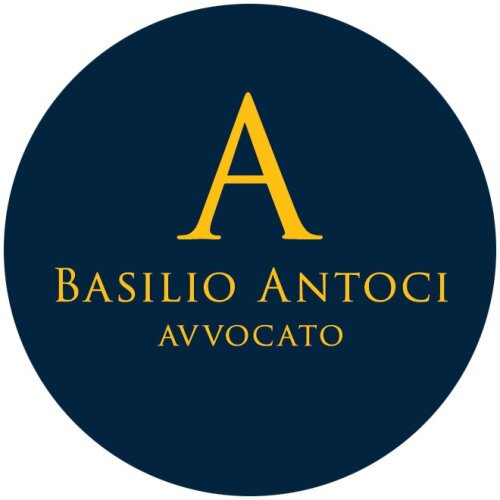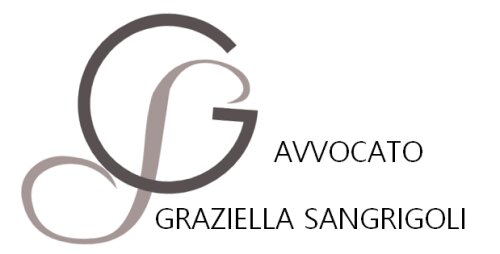Best Collaborative Law Lawyers in Catania
Share your needs with us, get contacted by law firms.
Free. Takes 2 min.
Free Guide to Hiring a Family Lawyer
List of the best lawyers in Catania, Italy
About Collaborative Law in Catania, Italy
Collaborative Law is a modern approach to dispute resolution, especially relevant to family law, divorce, and civil disputes. In Catania, as throughout Italy, Collaborative Law (Diritto Collaborativo) allows parties in a conflict to work toward a mutually amicable solution without resorting to traditional litigation. Instead, both parties, along with their respective lawyers, commit to resolving their issues through a series of meetings and negotiations. This process encourages open communication, cooperation, and confidentiality, often resulting in quicker, less adversarial outcomes compared to court proceedings.
Why You May Need a Lawyer
There are several situations where you may need legal assistance in the field of Collaborative Law in Catania:
- Family and Divorce Issues: When facing separation, divorce, or child custody matters, Collaborative Law can provide a non-confrontational process.
- Civil Disputes: For business, contractual, or neighborly disputes, Collaborative Law can help avoid lengthy court battles.
- Inheritance and Succession: Complex family or inheritance matters often benefit from collaborative legal guidance.
- Business Partnerships: When dissolving business partnerships or negotiating terms, collaborative processes can protect relationships and reputations.
- Pre-litigation Advice: If you hope to resolve a dispute without going to court, a lawyer versed in Collaborative Law can help facilitate this process.
Local Laws Overview
Collaborative Law in Italy, including Catania, is governed by principles recognized under Italian civil law and professional legal ethics. Parties and their lawyers sign a participation agreement, committing to negotiate in good faith and transparently share relevant information. Key aspects include:
- Voluntary Participation: All parties must agree to follow the Collaborative Law process. No one can be compelled.
- Confidentiality: Communications in the collaborative process cannot be used as evidence in later litigation, ensuring a safe environment for negotiation.
- Withdrawal Clause: If the collaborative process fails, lawyers involved cannot represent their clients in subsequent litigation regarding the same matter, fostering a strong incentive to resolve the issues.
- Role of Experts: Neutral professionals (accountants, psychologists, etc.) may be jointly engaged to support fair, transparent resolutions.
- Formalization: Final agreements reached in the collaborative process can be formalized into legally binding contracts or court orders, depending on the case type.
Frequently Asked Questions
What disputes can be resolved through Collaborative Law in Catania?
Collaborative Law is commonly used in family law (divorce, child custody), but it also applies to civil, business, and inheritance disputes where parties want to reach solutions cooperatively.
Is participation in the Collaborative Law process mandatory?
No, participation is entirely voluntary. Both parties must agree to use Collaborative Law for it to proceed.
What are the advantages of Collaborative Law over traditional litigation?
Collaborative Law is typically faster, less costly, more private, and less adversarial than going to court. It aims for mutually satisfactory solutions.
Can we involve other professionals (psychologists, accountants) in the process?
Yes, neutral experts may be involved to provide specialized input and ensure fair, balanced agreements.
What if the collaborative process fails?
If parties cannot reach agreement, they may pursue litigation. However, the lawyers who represented the parties in collaborative negotiation cannot represent them in court for the same matter.
Are collaborative agreements legally binding in Italy?
Yes, once formalized, agreements reached through the collaborative process can be enforced as contracts or through court approval.
How does confidentiality work in Collaborative Law?
All discussions, drafts, and communications during the collaborative process are confidential and cannot be used in court should negotiations fail.
Do both parties need separate lawyers?
Yes, each party must have their own independent, collaboratively trained lawyer to ensure their interests are professionally represented.
How long does the Collaborative Law process typically take?
The duration depends on the complexity of the issues and the willingness of the parties to collaborate, but it is often quicker than traditional court proceedings.
How do I find a Collaborative Law lawyer in Catania?
Look for lawyers who are members of recognized Collaborative Law associations or who have specialized training in this area. Local bar associations and online directories can help.
Additional Resources
If you need further guidance or legal assistance in Collaborative Law matters, consider reaching out to the following resources in or near Catania:
- Ordine degli Avvocati di Catania: The local Bar Association can provide lists of qualified collaborative lawyers.
- Associazione Italiana Professionisti Collaborativi: The national association for Collaborative Law practitioners, which offers educational resources and local contacts.
- Local Family Mediation Centers: Some disputes may benefit from mediation as a complement or alternative to Collaborative Law.
- Comune di Catania Legal Advice Services: Public legal aid offices may provide information or reference to collaborative professionals.
- University Legal Clinics: Local universities may offer legal clinics where you can receive information about dispute resolution options.
Next Steps
If you believe Collaborative Law may be right for your situation in Catania, consider the following steps:
- Reflect on your goals and willingness to cooperate with the other party in resolving your dispute.
- Consult with a lawyer experienced in Collaborative Law to discuss your case and understand your options.
- Verify your lawyer’s credentials and ensure they have specific training in Collaborative Law procedures.
- Discuss the participation agreement and ensure you understand the principles of confidentiality and voluntary participation.
- If both parties agree, begin the collaborative process, possibly with the help of additional professionals as needed.
- Work toward a mutually beneficial solution, keeping lines of communication open and respectful.
- Once an agreement is reached, ensure it is properly formalized and, if required, validated by the relevant authorities or courts.
Remember, seeking professional legal advice early can help you understand whether Collaborative Law is the right choice for your circumstances and ensure your rights and interests are fully protected.
Lawzana helps you find the best lawyers and law firms in Catania through a curated and pre-screened list of qualified legal professionals. Our platform offers rankings and detailed profiles of attorneys and law firms, allowing you to compare based on practice areas, including Collaborative Law, experience, and client feedback.
Each profile includes a description of the firm's areas of practice, client reviews, team members and partners, year of establishment, spoken languages, office locations, contact information, social media presence, and any published articles or resources. Most firms on our platform speak English and are experienced in both local and international legal matters.
Get a quote from top-rated law firms in Catania, Italy — quickly, securely, and without unnecessary hassle.
Disclaimer:
The information provided on this page is for general informational purposes only and does not constitute legal advice. While we strive to ensure the accuracy and relevance of the content, legal information may change over time, and interpretations of the law can vary. You should always consult with a qualified legal professional for advice specific to your situation.
We disclaim all liability for actions taken or not taken based on the content of this page. If you believe any information is incorrect or outdated, please contact us, and we will review and update it where appropriate.











